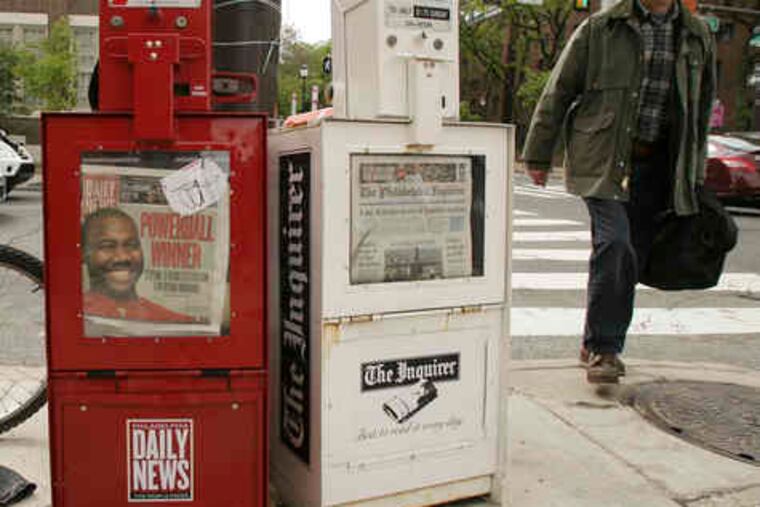Must newspapers die? A prescription for revitalizing local news | Opinion
There’s reason for great optimism that the business of local news can be reinvented, especially here in Philadelphia where the First Amendment was penned.

It has been a very challenging year for local journalism. Last week a promising Philadelphia-based news start-up called Spirited Media announced its decision to find a new home for its Billy Penn news site, unable to generate sufficient revenue to continue on its own. I was an early investor in Spirited and know firsthand the talent of its team and leadership. To its credit, The Inquirer took no cheer in the woes of a competitor. The Editorial Board published a deeply empathetic post-mortem titled “What we lose when we lose news,” about the diminished capacity for watchdog journalism, free expression, and the democratic process that accompanies a hobbled local news industry.
Earlier this year, Digital First Media, a renowned cost-cutter, made a hostile bid for Gannett, America’s largest newspaper chain. This prospective acquisition is especially disturbing here in the Greater Philadelphia region since Gannett owns newspapers in Cherry Hill, Asbury Park, Wilmington, and other local communities. Controlled by Alden Capital, a New York investment firm and once a major shareholder in The Inquirer, Digital First has savagely cut its newsrooms. Inquirer columnist Will Bunch wrote that, if completed, the takeover “would implant DFM/Alden’s money-siphoning brand of vulture capitalism at 300 newspapers from coast-to-coast.”
This tale of revenue challenges and corporate greed is playing out at newspapers across the country just when our democracy needs them most. Once-vital local newspapers may either fold altogether or find their newsgathering capabilities so diminished that they operate as news zombies, published in name only, without depth or impact. It’s worth asking if the death of some American newspapers is imminent? Almost certainly, yes. Is their passing inevitable? Absolutely not.
To the contrary, there’s reason for great optimism that the business of local news can be reinvented, especially here in Philadelphia, where the First Amendment was penned.
Four years ago, after multiple changes of ownership, The Inquirer was purchased by H.F. “Gerry” Lenfest and rededicated to the people of Philadelphia. Gerry’s core vision was that news should not be run solely as a business. He believed that a great city both needs and deserves a great newspaper. He likened this news enterprise to other civic treasures -- a great orchestra, a renowned art museum, or a world-class hospital or university each supported by both earned revenue and philanthropy. Gerry charged the newspaper not with maximizing profits but with sustaining great journalism in the public interest. He donated the business to a nonprofit organization now called the Lenfest Institute for Journalism, dedicated to supporting sustainable business models for local news in Philadelphia and nationwide.
The Inquirer and the Lenfest Institute have organized ourselves unabashedly as a donor-supported community news enterprise. Philadelphia donors large and small have joined the cause: Entrepreneurs, executives, students, civic leaders, local community foundations, the deans of schools of journalism, and former editors and reporters. These stakeholders have collaborated to fund investments in new investigative news coverage, new technology, improved digital products, and greater diversity in the newsroom, each vital to sustainable local journalism.
The Inquirer has operated under this visionary model for three years. The newspaper is neither out of the woods financially nor ready to declare victory, but we believe we have put in place the building blocks of a sustainable local news operation. Our success will depend on the support of our community, just as our community’s success depends on a robust and free press. This reinvention of the business of local news has begun here in Philadelphia, but we suspect it will spread, as have past innovations in free speech. Our fellow newspaper publisher Ben Franklin said, “Either write something worth reading or do something worth writing.” With the support of this great and generous community, we hope to do both.
Jim Friedlich is the executive director and CEO of the Lenfest Institute for Journalism. @jimfriedlich